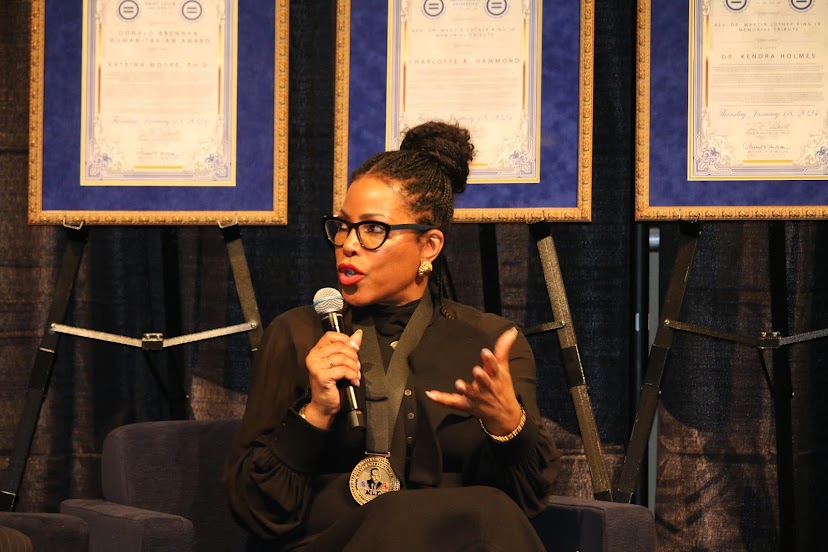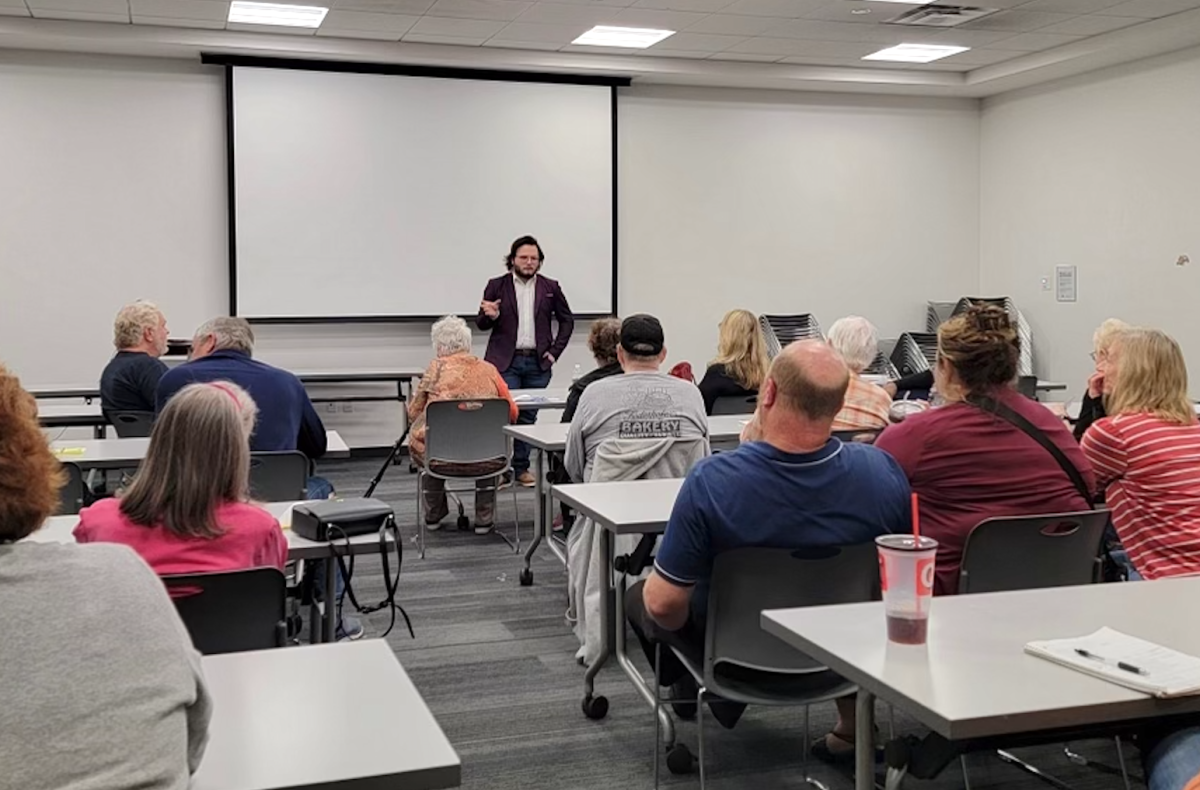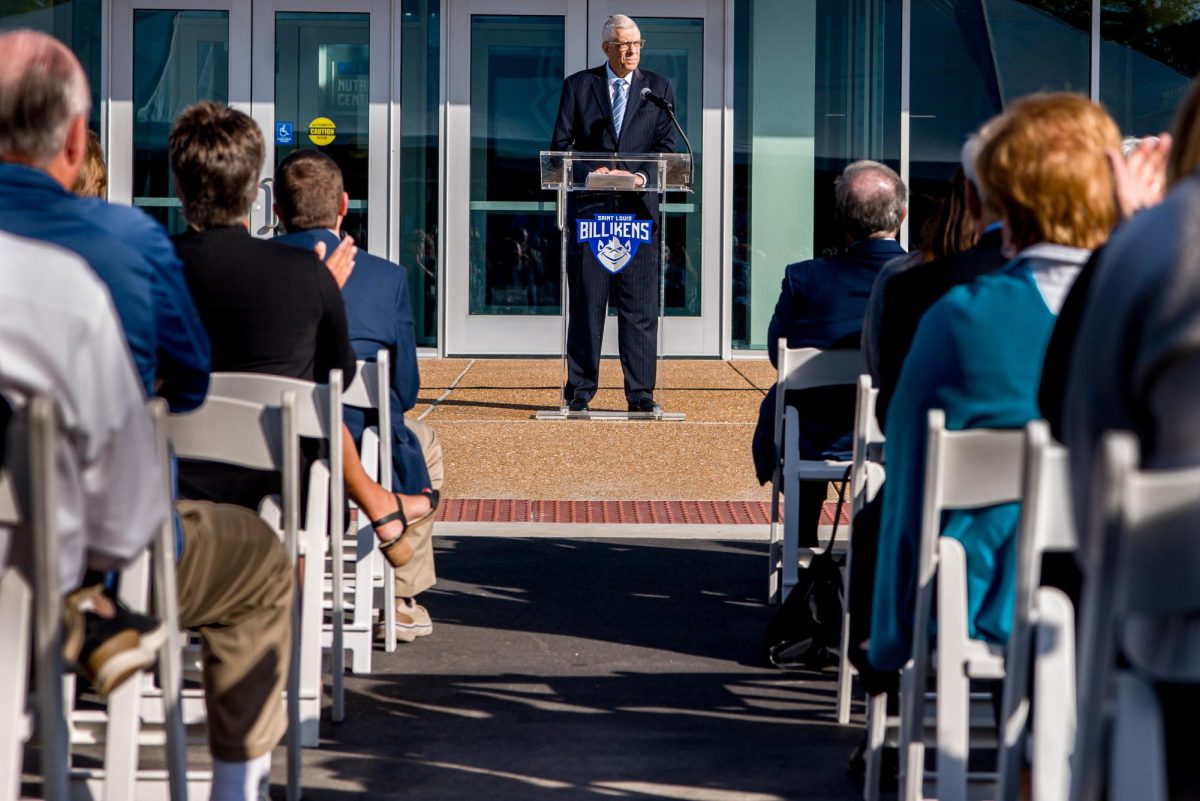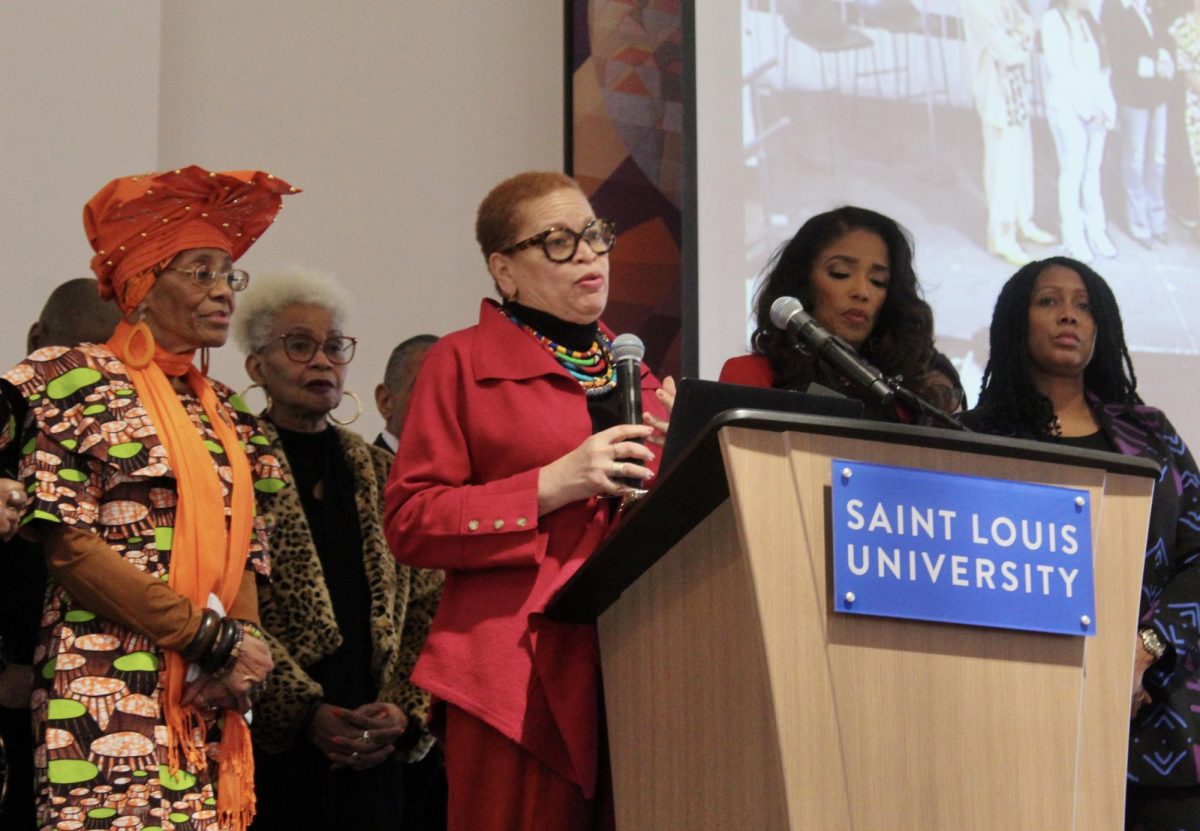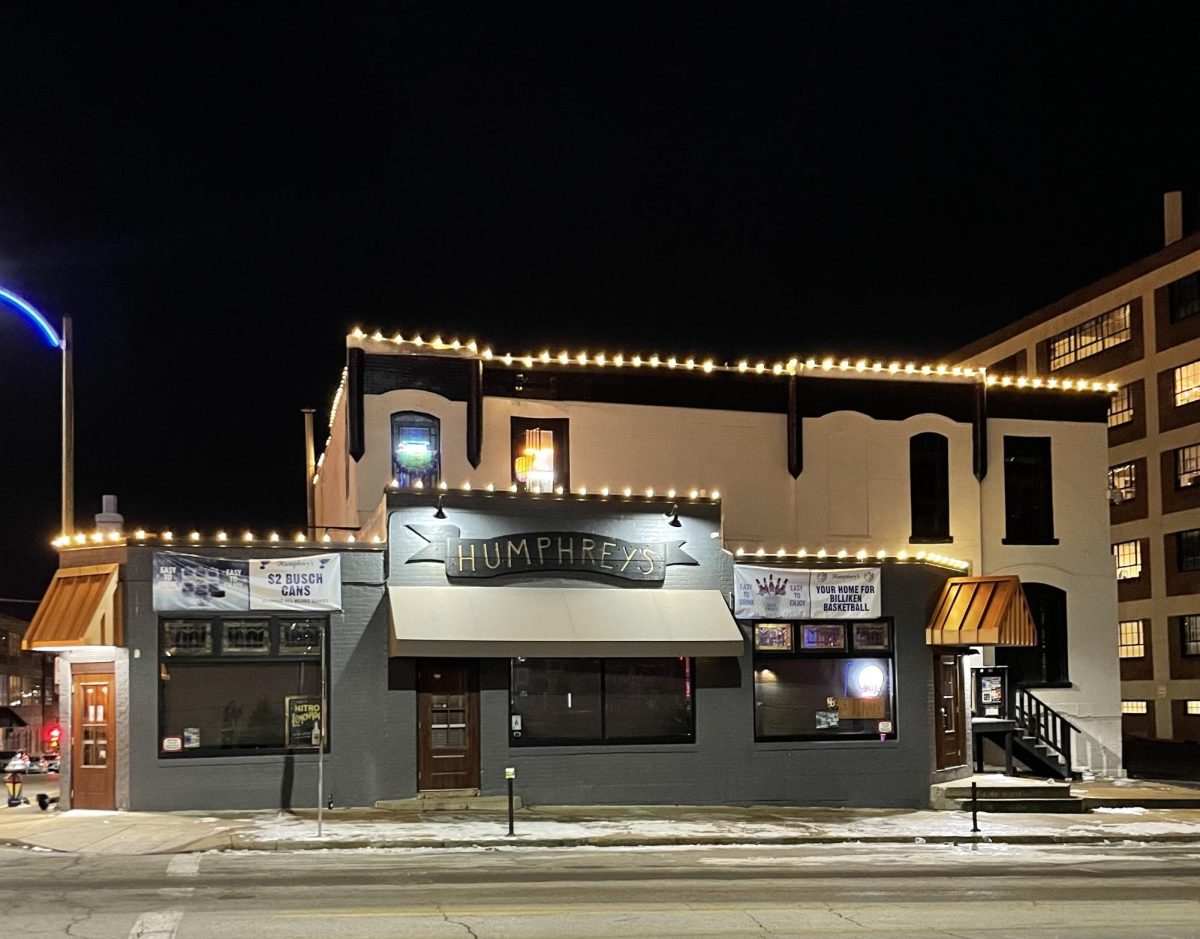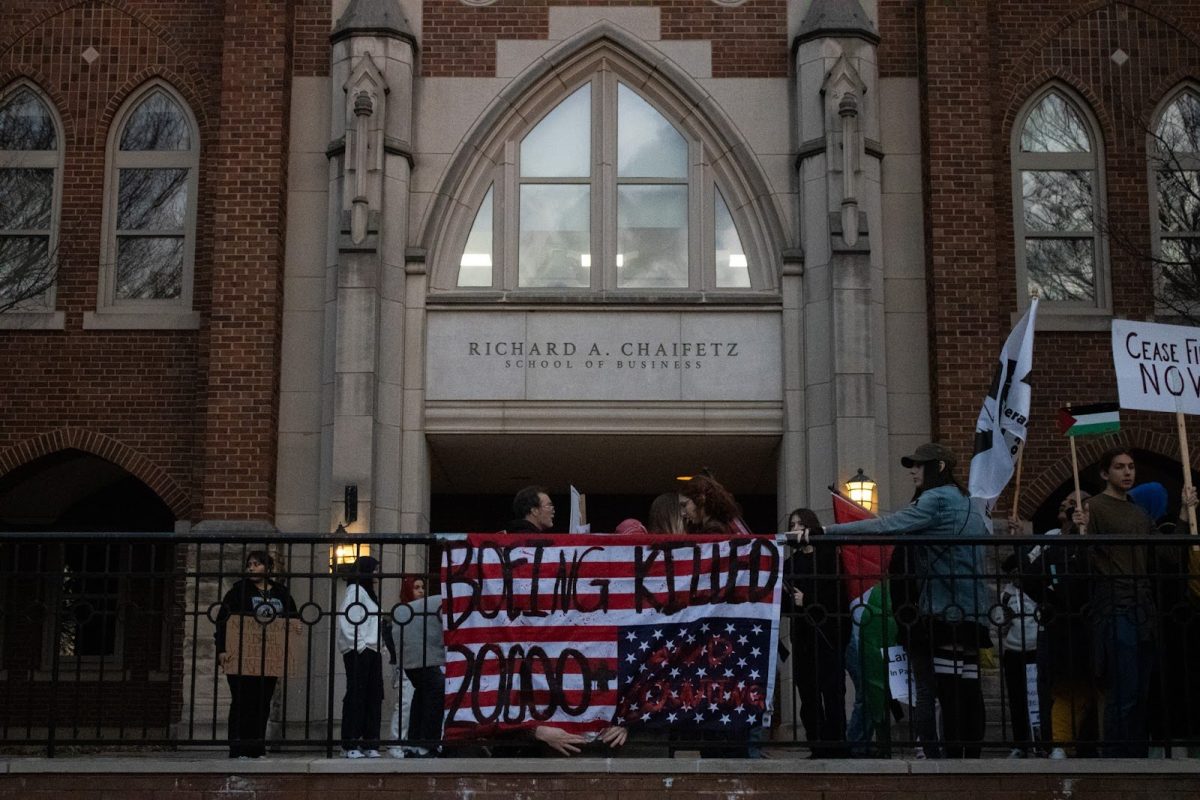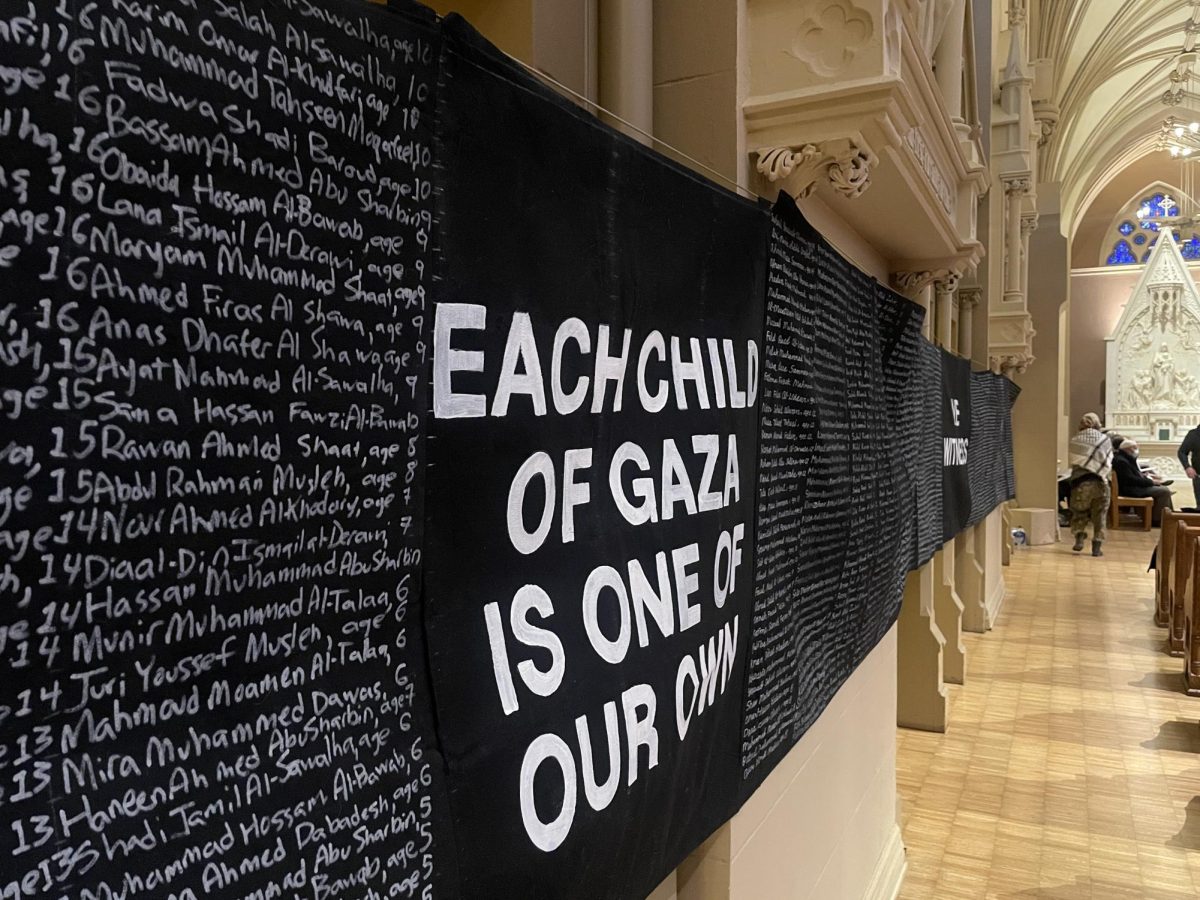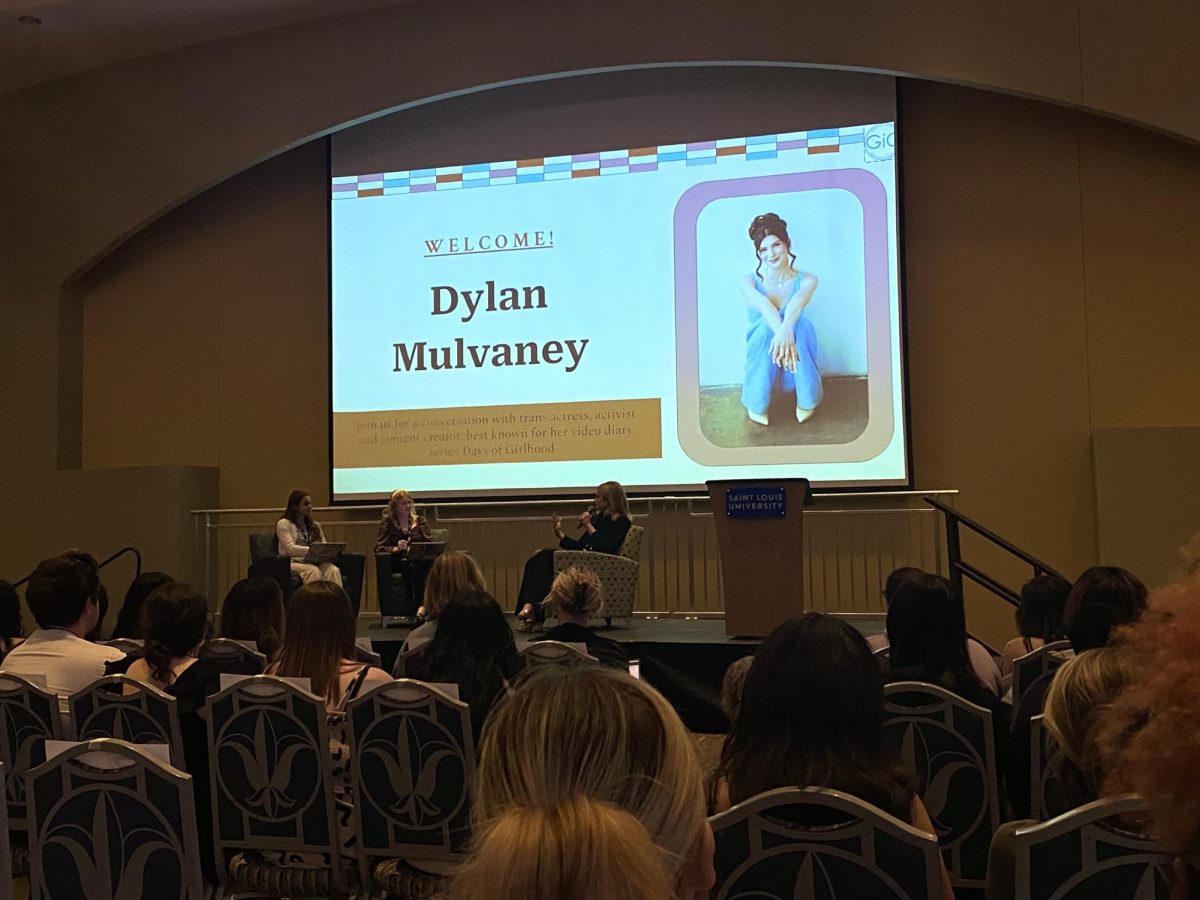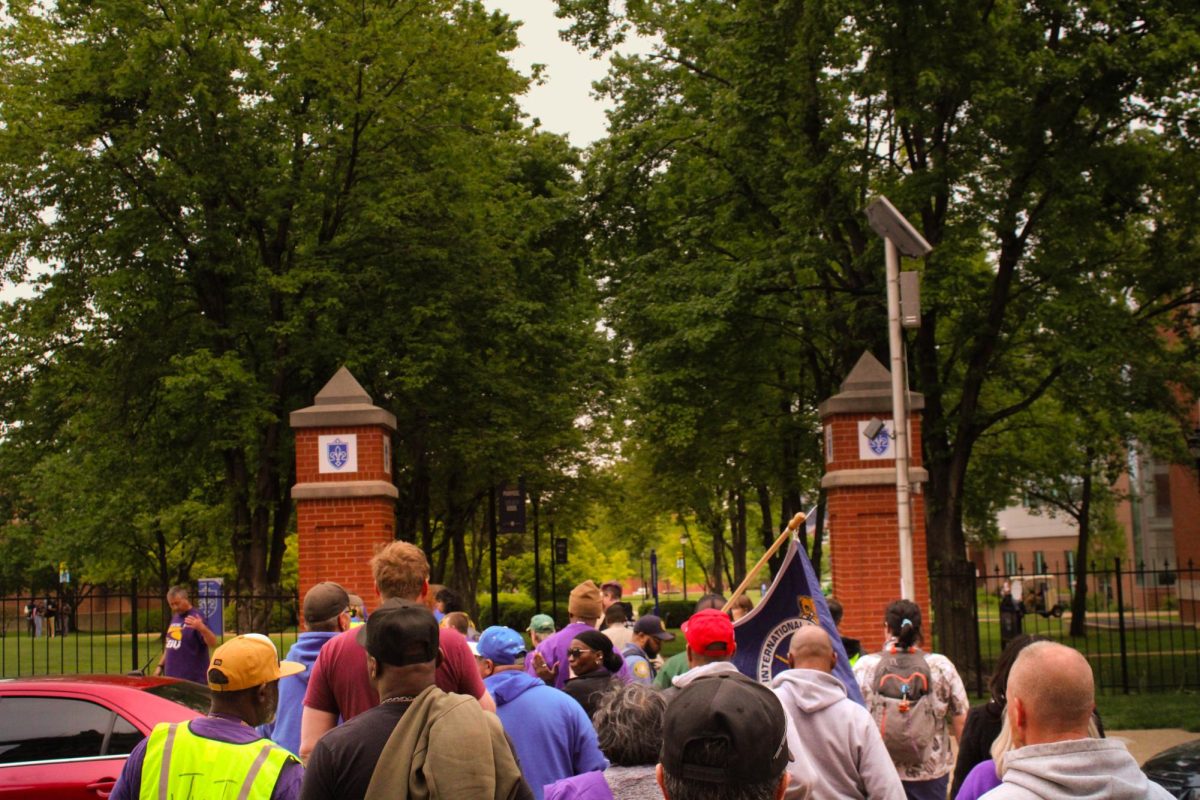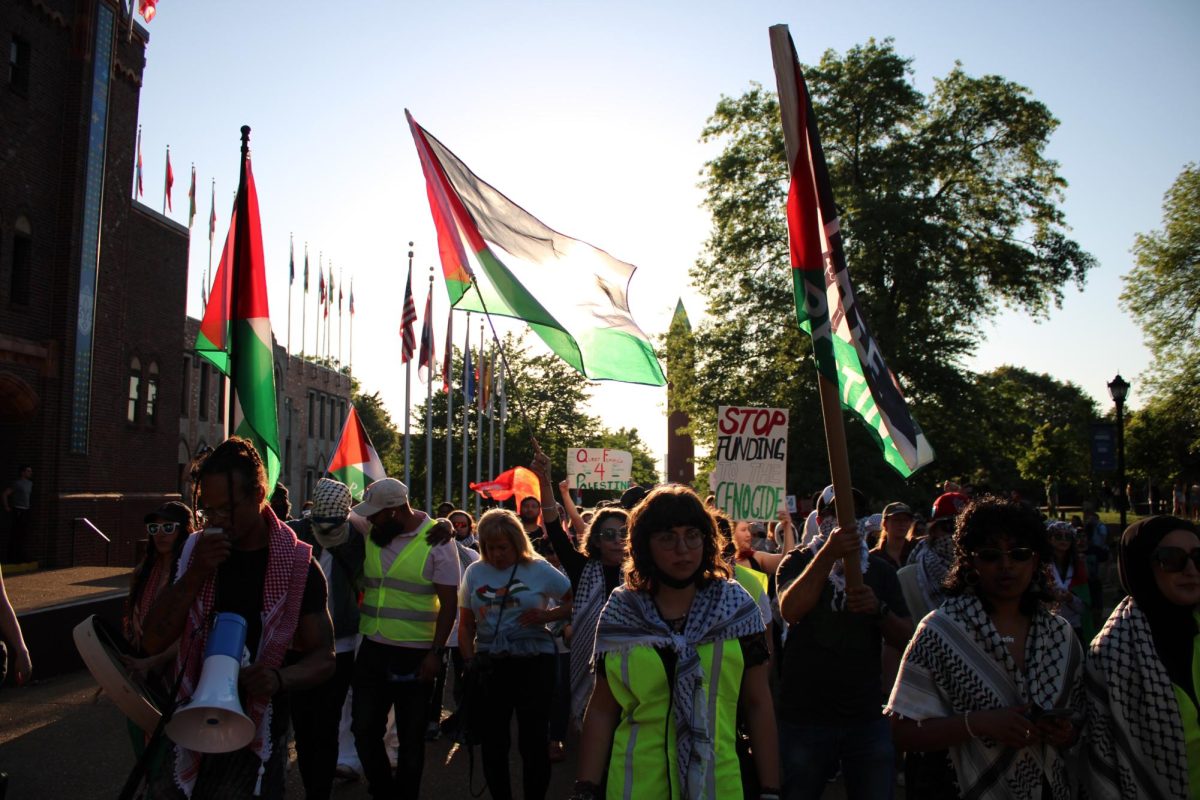Dr. Ilyasah Shabazz recalled the day when she stood alongside her three sisters and her pregnant mother, Dr. Betty Shabazz. On Feb. 21, 1965, in what was formerly the Audubon Ballroom, Betty witnessed the brutal assassination of her husband, Malcolm X.
“When I think of a north star, I think of my mother,” Shabazz said. “She walked out [of the Audubon Ballroom] devastated, having seen him shot 21 times.”
Author and social activist Shabazz spoke about her parents to the attendees of Saint Louis University’s 12th annual tribute for Dr. Martin Luther King Jr. The event on Jan. 18 was held in collaboration with the St. Louis Urban League. The program began with a breakfast, remarks from St. Louis Urban League President Michael P. McMillan, SLU President Fred Pestello and Vice President of the Division of Diversity and Innovative Community Engagement Rochelle D. Smith.
Several SLU and St. Louis community members were recognized for their civic leadership and humanitarian work. Following the awards program, there was a fireside chat between Shabazz, daughter of Malcolm X, and Xernona Clayton, a civil rights leader and former advisor to Dr. King.
The location of Malcolm X’s assassination was transformed into the Shabazz Memorial and Educational Center, and Shabazz currently serves as the Chairperson.
“My mother turned this place that represented tragedy into a place of triumph,” Shabazz said.
The center fosters leadership development for young people and hosts intergenerational discussions about social justice movements, “making sure that everyone feels seen,” Shabazz said.
“What my mother did for her six girls is made sure that each one of us learned about the significant contributions that women made to the world, that Islam into the world, and that the African diaspora as a first-world nation made to this world,” Shabazz said. “I often wonder how she was able to overcome all of what she did. She went on, got her PhD, raised her six girls and she safeguarded the accurate legacy of her husband, because we all know, the Malcolm that we learned about certainly isn’t the Malcolm that is true.”
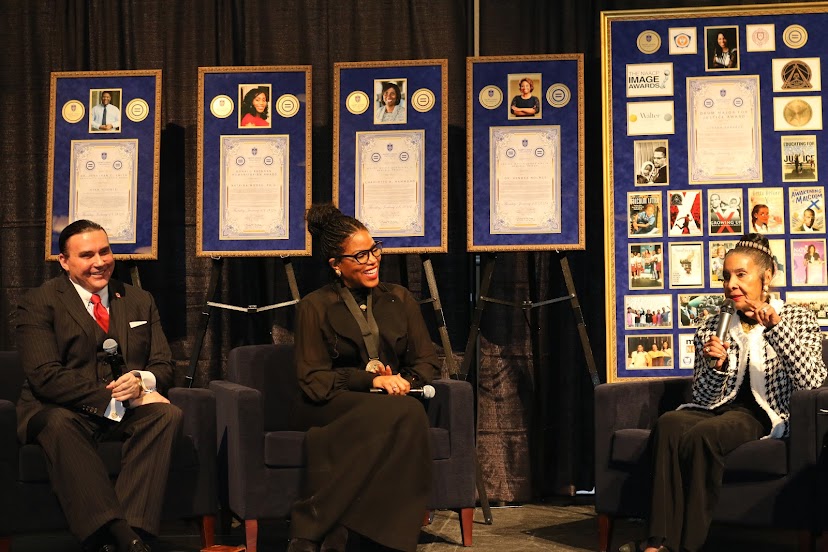
Shabazz said she credits her parents for teaching her and her siblings how to love who they are. Clayton also described the importance of being able to love others and seek common ground, recalling the last words Dr. King’s shared with her as she drove him to the airport, two weeks before he was killed:
“I absolutely believe in my heart that Black and white can live together. I believe that we can love each other. If we would just examine how we all got here, it would be understandable.”
In addition to recounting the shared goals of justice and peace that these heroic leaders represent, Shabazz and Clayton addressed the rumored division between Dr. King and Malcolm X.
“The day he [Dr. King] left to go and meet with Malcolm X, everybody was buzzing about, ‘oh boy, we’re going to have war.’ The two were meeting for the first time,” Clayton said. “And when they met, they hugged. Dr. King said to Malcolm X, ‘I’m not here to fight. I’m not here to discuss, I’m here to love.’ He said ‘The problems are too big for us to separate in fighting each other. We need to fight the ills of our society, and we can do it together.’ There was no bloodshed. Nothing happened but arms embracing each other. I remember that.”
Shabazz added that beyond the mutual respect between these leaders, their families also remained connected, as the King and Shabazz children grew up in close relation to one another.
“I think that was more the media stirring all that [controversy] up, because we know if you’re a steward of God, and you are committed to the people, there is no time and there’s no bitterness towards one another,” Shabazz said.
With the grief of the trauma they endured, Shabazz commends her mother for being a pillar of inspiration, strength and knowledge throughout her life.
While she was evidently mourning, she poured so much love into us and so many communities. I realized that she was able to overcome [challenges] because of her enormous faith in God, her self respect and her understanding of history and its truth,” Shabazz said.
Throughout her schooling years, Shabazz said she encountered many people who could not love themselves, and this was the reason that she chose to go into education.
“If I don’t love me, I certainly cannot love you. And if I do love me, then I see you as a reflection of me and when there’s injustice or inequity of any kind then I step in and do whatever I can to be helpful,” Shabazz said. “Black history is American history, as is Latin American history, Asian American history and Native American history. If this kind of information is not in our textbooks, how does that make our young people feel when they’re learning?”
In an effort to make education more inclusive, Shabazz works to share the discoveries of archaeologists, anthropologists and scientists that Africa is the cradle of human civilization. She said it is vital to her that people know where the first libraries existed, empires like Benin, Ghana and Mali, and where “Black African scholars conferred degrees to citizens of the world,” she said.
This theme of truth-seeking continuously echoed between Clayton and Shabazz, as they spoke of transforming knowledge and passions into doing good for others.
“I’m hopeful, as Dr. King wrote, ‘it’s imperative that we love each other and treat everybody with respect,’ and this will be a better world, however long we live in it,” Clayton said.


